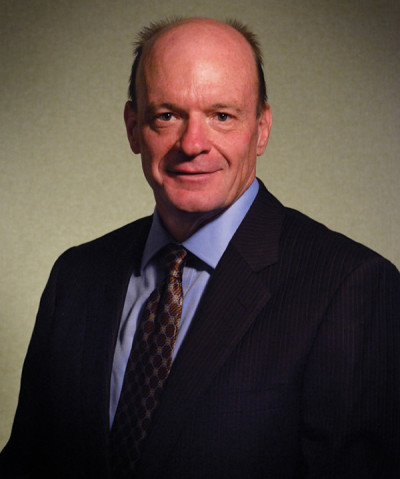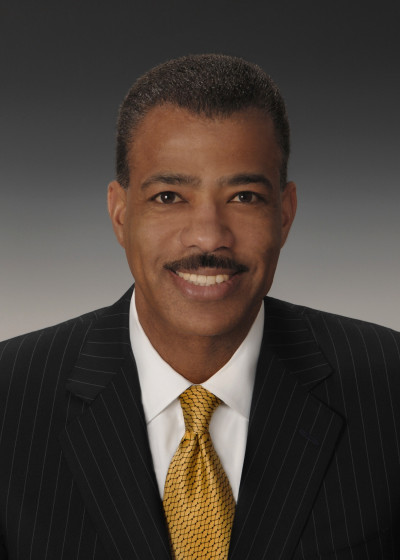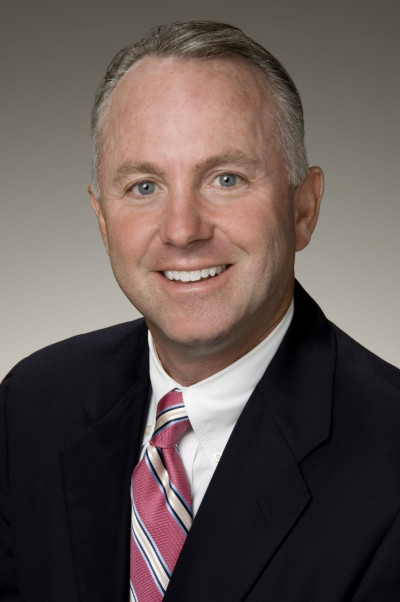Weiss: GOP Health Care Proposal Pull at Last Moment
Monday, March 27, 2017
Days ago, unified Democratic lawmakers combined with a deep philosophical wedge between the conservative House Freedom Caucus and moderate Republicans over policy details of the American Health Care Act (AHCA), forced the Trump Administration and House Speaker Paul Ryan to pull the AHCA proposal minutes from a floor vote to steer it away from a humiliating legislative defeat last Friday. Interestingly, the seventh anniversary of President Barack Obama signing the Affordable Care Act (ACA), his signature health care law, took place one day before the House vote.
A day before Friday’s scheduled vote to dismantle and repeal Obama’s ACA, President Donald Trump taking a high-risk negotiation tactic straight out of his bestselling book, “The Art of the Deal,” gave a late-Thursday night ultimatum to the House GOP lawmakers. Trump told to them to vote up or down on AHCA or he would be prepared to move on to other legislative agenda items.
As to Trump’s ultimatum to GOP House lawmakers, CNN Presidency Historian Timothy Naftali noted on CNN Newsroom with Fredricka Whitfield, “He played chicken and he blinked.”
GET THE LATEST BREAKING NEWS HERE -- SIGN UP FOR GOLOCAL FREE DAILY EBLASTHouse GOP Making Legislative Sausage
In a report issued on March 13, the Congressional Budget Office (CBO), detailed the drastic impact of the initial AHCA legislative proposal. CBO, a federal agency that provides budget and economic information to Congress, found that AHCA would result in 24 million losing health insurance coverage by 2026, Medicaid would be cut by $880 billion over the next ten years, and premiums and out-of-pocket costs would skyrocket increase, particularly for older adults and individuals with lower incomes.
Earlier this week, on Monday, Ryan and his House GOP Leadership team made eight amendments to AHCA to pull in skeptical GOP moderate and conservative lawmakers, including the controversial speeding up tax cuts while whittling down the Medicaid program. Later, on March 23, CBO confirmed that these amendments would lead to essentially the same level of coverage losses, about 24 million people and cost increases for individuals and would yield $187 billion less in savings than the original GOP health care proposal.
Meanwhile, on Wednesday, Senator Wyden and Congressman Pallone revealed that the Center for Medicare & Medicaid Services' independent Actuary “estimated that the repeal of the tax on prescription medications, known as the ‘pharma fee,’ beginning January 1, 2017 would increase Medicare Part B premiums by $8.7 billion through fiscal year 2027.” noted the Center for Medicare Advocacy.
On Thursday, three more amendments were offered to sway GOP House critics. One would strip the requirement that insurance companies cover essential health benefits (EHB). This amendment would effectively eliminate annual out-of-pocket caps, reinstate annual and lifetime coverage limits, and gut protections for pre-existing conditions. Another would delay – but not remove – the Medicare payroll tax cut that will undermine Medicare’s financing and its future stability.
After the defeat of AHCA, Trump blamed the Democrats for the House GOP’s failure to pass its health care proposal to scrap Obamacare. “The Democrats were not going to give us a single vote,” he said, warning that “Obamacare will explode” forcing the opposition party back to the negotiation table to craft a better health care law.
House Speaker Ryan also noted that “We are going to be living with Obamacare for the foreseeable future.”
“We just really did not get a consensus today,” say Ryan. “That’s why I thought the wise thing to do was not proceed with a vote but to pull the bill. When asked if he was going to try “to prop it up, Ryan responded by saying “it is so fundamentally flawed, I don’t know that that is possible.”
Sighs of Relief from Aging Groups, Democrats
“The American Health Care Act is not American in spirit or health care in substance. In fact, it's a tax cut bill for the wealthy, not a health care bill for the people. It will make America sicker. Congress should reject this charade and this disaster of a bill today," states Judith Stein, Executive Director of the Center for Medicare Advocacy.
“The House Congressional leadership was destined to lose on their disastrous American Health Care Act, which would have effectively repealed Obamacare and hurt seniors, including beneficiaries of Medicare and Medicaid. It doesn’t matter whether they pulled or failed to pass the bill,” says Richtman, President and CEO of the National Committee to Preserve Social Security and Medicare in a statement. “It needed to go down and we thank the millions of National Committee members and supporters – and those of other senior advocacy organizations – whose protests were loud, numerous, and furious.”
“No one knew’ that health care could be so complicated. Hopefully, he has learned a lesson… that health legislation is built on a complex foundation that considers the real human needs – and costs – of changes to the system. A common refrain from Donald Trump during the campaign was, ‘What do you have to lose by electing me?’ Now we know what’s at stake: affordable health care for older Americans, Medicare, and Medicaid,” says Richtman.
“The leadership’s decision to withdraw the bill from consideration proves that the voices of Americans are very powerful. This harmful legislation would have added an Age Tax on older Americans and put vulnerable populations at risk,” says AARP Executive Vice President Nancy LeaMond, in a statement.
LeaMond calls on Congress to focus on the issues important to older Americans and their families, including: protecting and improving Medicare’s benefits and financing; providing access to affordable quality coverage; preventing insurers from engaging in discriminatory practices; lowering prescription drug costs; providing new incentives to expand home and community based services; and strengthening efforts to fight fraud, waste, and abuse.
Adds, Justice in Aging Executive Director, Kevin Prindiville, “Congress tried to rush this disastrous bill through Congress without regard for the health and safety of older Americans and their families, and such a bill cannot and should not be revived. Older adults and their families rely on Medicaid and Medicare and these programs must be protected.”
Compromise might well be the way to make sound changes to the nation’s health care law, says Rep. David N. Cicilline (D-RI), who serves as House Democratic Policy and Communications Committee. “The Affordable Care Act is a good law, and Republicans and Democrats should be working together to make it even better. If Republicans ever decide to come to the table, we should work together to increase competition, expand coverage, and bring down premiums. That’s a decision that Republicans have to make – whether to work with Democrats or continue down the path they’re on,” he says.
Rep. James Langevin (D-RI) also stresses the importance of reaching over the aisle to create a better health care law and getting away from partisan bickering. “It’s time for Republicans to move on from their misguided crusade to dismantle the ACA. The health care law has brought insurance coverage to millions of Americans. Its consumer protections, premium assistance, essential health benefits, and countless other provisions that were at risk of elimination have improved our nation’s health and saved lives. We must work together in a bipartisan manner to strengthen and improve the ACA, not risk the health and wellbeing of everyday Americans for an empty, partisan victory,” he says.
Herb Weiss, LRI’12 is a Pawtucket writer covering aging, health care and medical issues. To purchase Taking Charge: Collected Stories on Aging Boldly, a collection of 79 of his weekly commentaries, go to herbweiss.com.
Related Slideshow: The Power List - Health and Education, 2016
Related Articles
- Weiss: Earth - The Gray(ing) Planet
- Weiss: OAA Reauthorization Bill Goes to President Obama for Signing
- Weiss: GAO Report Reveals Social Security Benefits Gap Between Rich, Poor
- Weiss: The Age of Disruption Tour’ Comes to Cranston
- Weiss: Rhode Island Lawmakers Can Say Never Again
- Weiss: Congressional Panel Looks Over Medicare
- Weiss: Social Security Gets Attention as Candidates Share Plans for Shoring Up System’s Solvency
- Herb Weiss: Presidential Candidates Mum on Social Security
- Herb Weiss: Obama’s Budget DOA, Thanks to GOP Gridlock
- Herb Weiss: Calling on Congress to Increase Alzheimer’s Funding
- Herb Weiss: Abate Joins Exclusive Class of Musicians
- Weiss: Regular Folks Give Sound Advice to Class of 2016 for Future Success
- Herb Weiss: Revelations that Bring Together Heaven and Earth
- Weiss: Samaritans Celebrate Their 40th Birthday
- Weiss: Can Our Nation Survive President-Elect Trump & the GOP’s Control of Capitol Hill?
- Weiss: Search on for GOP Senators to Protect Medicare
- Weiss: Overhauling Social Security & Medicare Gets ‘Thumbs Down’ in Recent Poll Findings
- Weiss: House GOP Leadership Puts its Health Care Proposal on Fast-Track
- Weiss: Attack Stunned Area Vets - Pearl Harbor Survivors Recall Horror of Dec. 7, 1941
- Fifth Time a Charm for Direct Care Worker Raises? MINDSETTER™ Weiss
- Herb Weiss: How the Presidential Election Impacts Social Security
- Weiss: This ‘Age Beat’ Writer to Publish Collected Stories on Myriad of Aging Issues
- Weiss: The Political Legacy of James E. Doyle
- Weiss: Housing Report Supports Push to Approve Question 7
- Weiss: Trump Budget Proposal Makes Draconian Cuts to Aging Programs



















